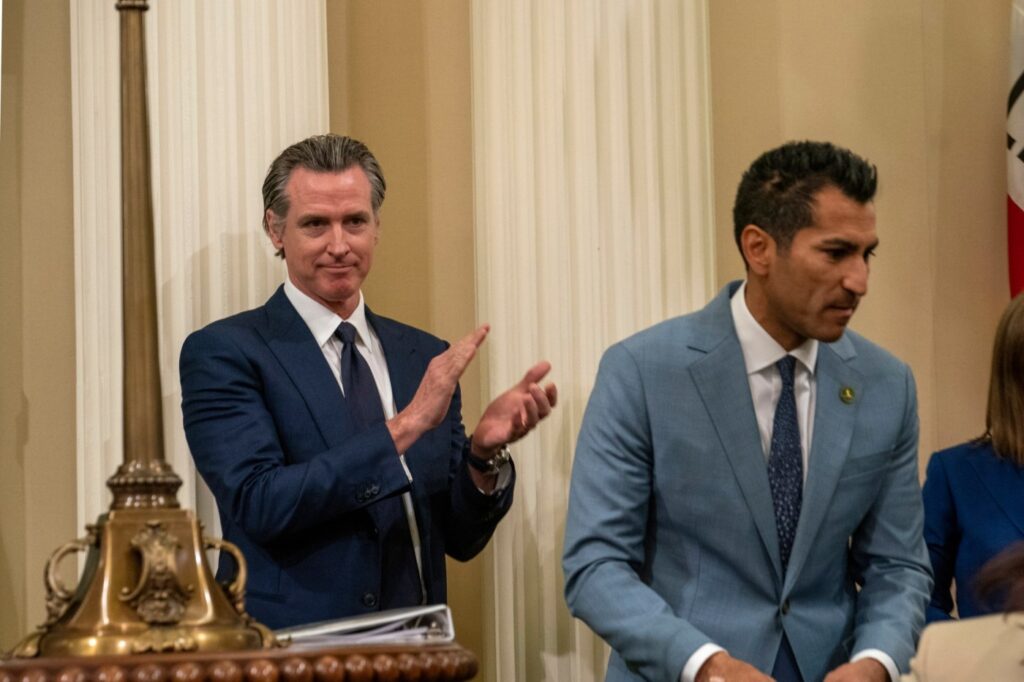
The California Legislature is broken and there doesn’t seem to be anyone with any power willing to fix it.
After years of being strung along by California Democratic leadership, reparations activists came away from last week’s end of the legislative session empty handed.
It’s not so much that the meat of the reparations package — two bills that would have created a new government agency and a funding mechanism — died; it’s that they died without a vote
The bills, like so many others, should have gotten at least a vote.
To be clear, I didn’t support the reparations bills. They would create a new bureaucracy, cost money the state doesn’t have and, more than anything, I think the debate should happen at the federal level.
But I am entirely sympathetic to the activists who want it, the reasons they want it, and the betrayal they must be feeling now after being strung along for years by the very people who would ultimately not even call it up for a final vote.
It’s actually a common theme. For example, California Democrats by and large say they support single-payer healthcare, and yet it not only routinely dies, but usually without a final vote.
The appeal of killing bills without a vote is that it allows members to continue pretending they support something their base likes without having to actually say how they really feel.
The Assembly can blame the Senate. The Senate can blame the governor. The governor can blame the Legislature. Usually someone blames “special interests.” And for a second you might actually forget that these are the people and institutions with the power and the supermajority to get whatever they want.
Sen. Steven Bradford, the Democratic author of the bills, told KQED that Gov. Gavin Newsom’s office requested amendments to gut one of the bills and replace it with a $6 million plan to have the California State University system “study” the issue.
Studying issues and forming task forces are another way politicians kill things without taking any real responsibility. Ironically, the reparations bills were the result of a prior task force Newsom created to study the issue. See how this works?
Newsom is said to be a big supporter of reparations. When he announced the forming of the task force in 2021, he made it known that California was “leading the nation;” that this discussion was “long overdue and deserves our utmost attention” — so much attention that it warrants not one, but two studies.
Did Newsom even read the task force’s 1,100 page report after it was released last year? No, he said, he “devoured” it. You know, just devouring a weighty tome on reparations policy like it’s “Harry Potter.”
But what was once devoured was eventually digested and so the bills died a lonely death.
Related Articles
Urbanist dreams foiled by lousy big-city governments
Thomas Elias: Why Kamala Harris’ gender continues to be downplayed by her own campaign
American entrepreneurs must be freed from excessive permitting requirements
Kamala Harris dodges interviews because she can
Newsom tries to bamboozle Californians with call for a special session
Highlighting the point last week was Corona Republican Assemblyman Bill Essayli, who tried repeatedly to call the bills up for a vote only to be ignored by the Democratic supermajority.
Essayli, who explained his rationale on X, said he did not support the bills but sympathized with the activists and thought the debate was worth having. After all, the Assembly floor is a place for debate.
But weren’t Essayli’s antics just a stunt?
Maybe, but it was also just a stunt when Vin Diesel jumped a Corvette off of the Foresthill Bridge in “xXx” and people love that movie.
My point is that stunts can serve a purpose. For Essayli, who has spent the past year ruffling feathers in the Legislature, the purpose was to highlight that hypocrisy that fuels the Statehouse.
I repeat: The Legislature is broken and it’s not getting fixed soon.
Matt Fleming is an opinion columnist for the Southern California News Group and CEO of Sower Strategies, a digital marketing and public affairs firm.
